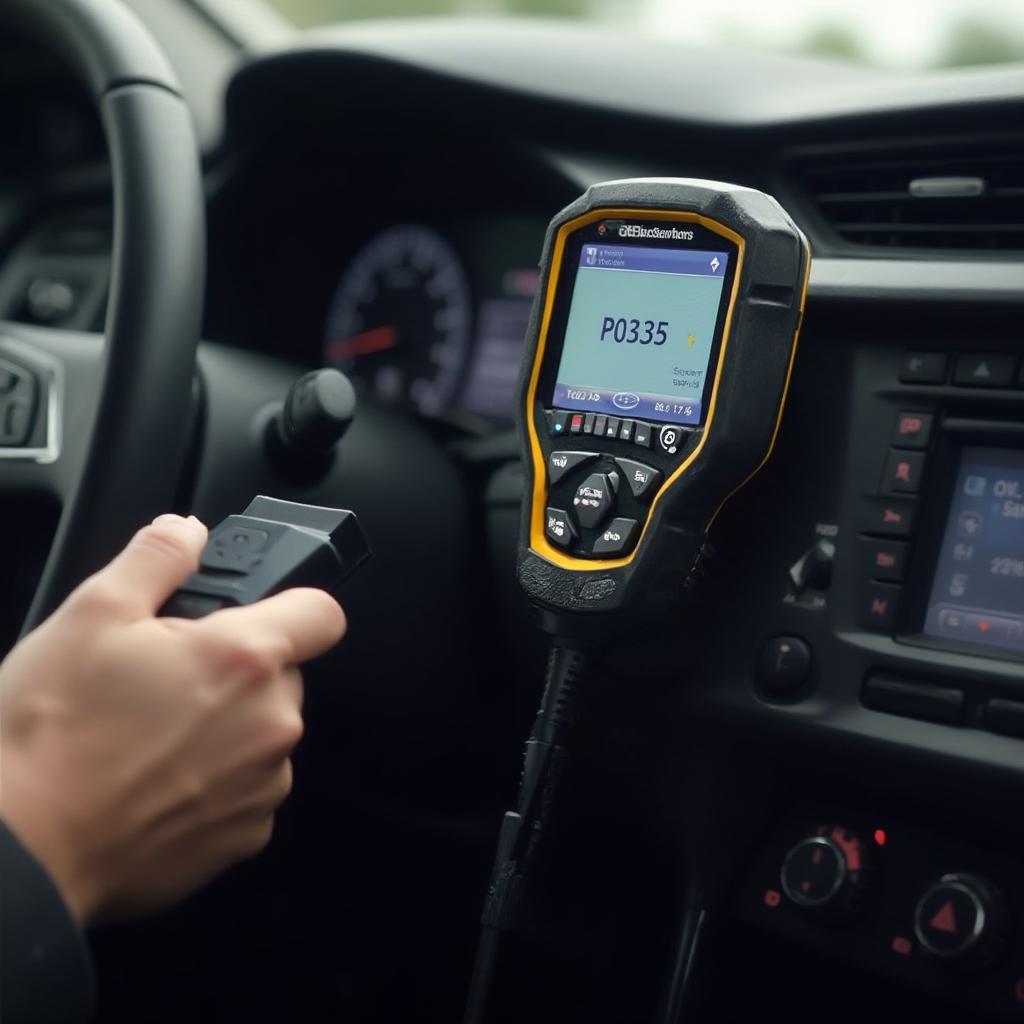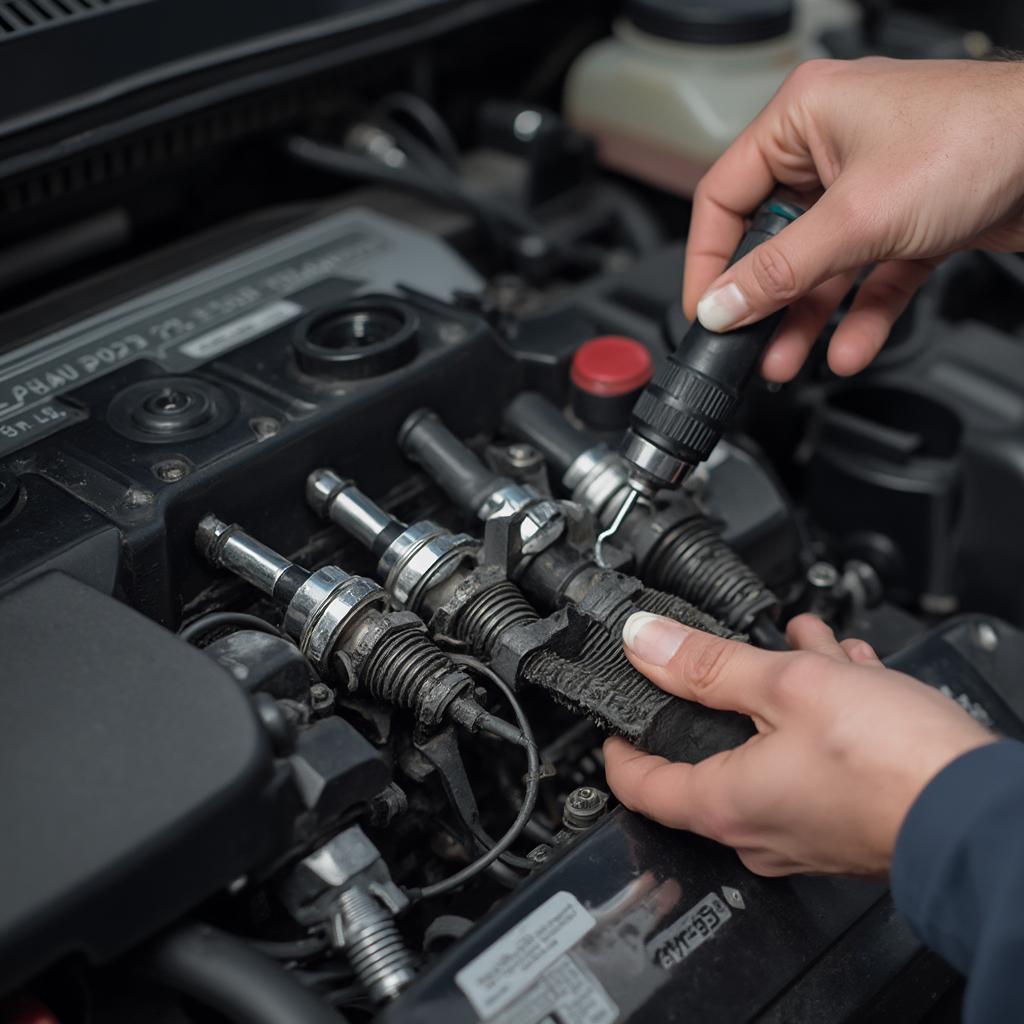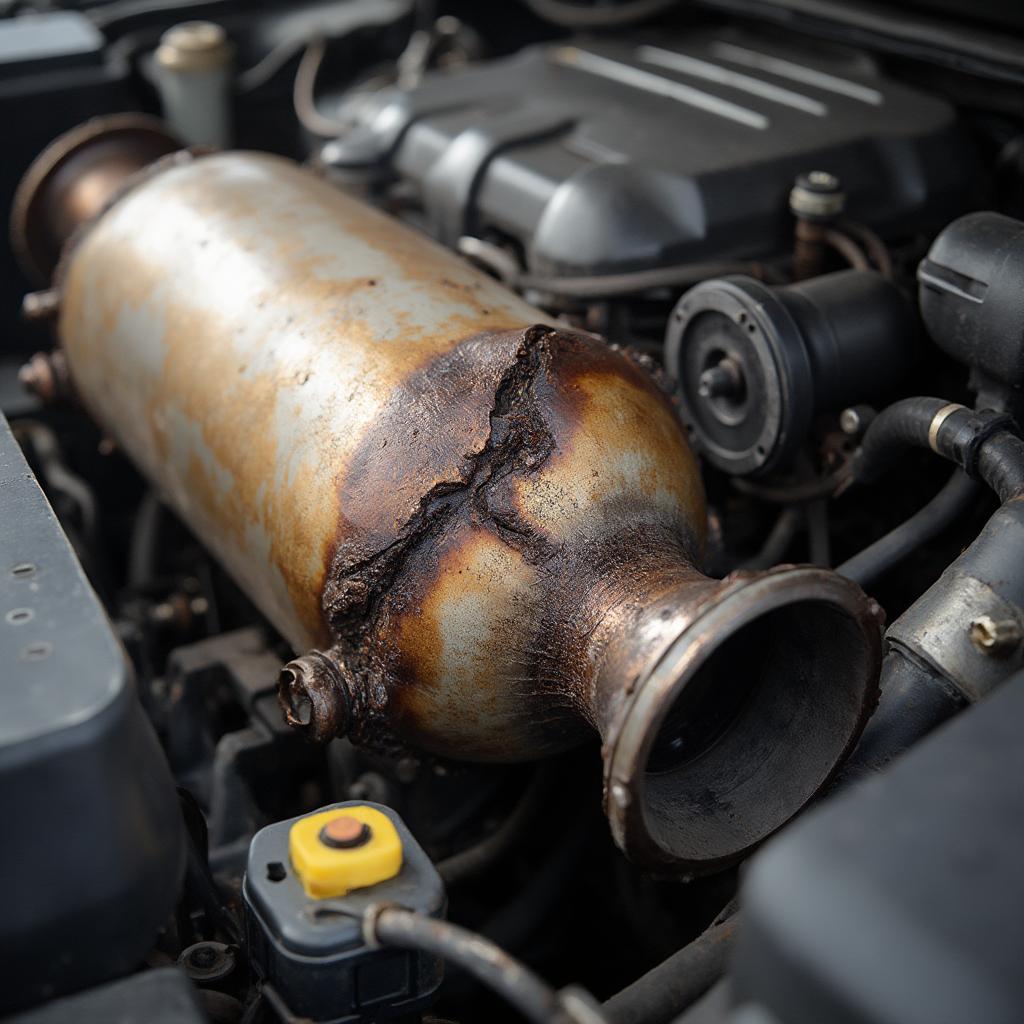Your cart is currently empty!

Understanding OBD2 P0305: Cylinder 5 Misfire Detected
The OBD2 code P0305 indicates a misfire detected in cylinder 5 of your engine. This issue can lead to reduced performance, increased fuel consumption, and potential damage to your vehicle if left unaddressed. Understanding what causes this error, how to diagnose it, and what solutions are available is crucial to keeping your car running smoothly.
What Does OBD2 P0305 Mean?
The P0305 diagnostic trouble code (DTC) specifically points to a problem with the combustion process in cylinder 5. A misfire occurs when the air-fuel mixture in the cylinder fails to ignite properly, or at all. This can stem from a variety of issues, ranging from simple spark plug problems to more complex issues with fuel delivery or compression. Ignoring a P0305 code can lead to further damage, such as a damaged catalytic converter, so addressing the problem promptly is vital.
Common Causes of OBD2 P0305
Several components contribute to the combustion process, and a fault in any of these can trigger a P0305 code. The most common culprits include:
- Faulty Spark Plugs or Wires: Worn or fouled spark plugs are often the primary cause. Damaged or corroded spark plug wires can also prevent the spark from reaching the cylinder.
- Fuel Injector Issues: A clogged or malfunctioning fuel injector can disrupt the proper delivery of fuel to cylinder 5, leading to an incomplete burn.
- Vacuum Leaks: Leaks in the intake manifold or vacuum hoses can introduce unmetered air into the engine, disrupting the air-fuel ratio and causing misfires.
- Low Compression: Low compression in cylinder 5, often caused by worn piston rings or valves, can prevent the air-fuel mixture from igniting correctly.
- Ignition Coil Problems: A failing ignition coil can weaken or eliminate the spark, leading to a misfire.
- Sensor Issues: While less common, problems with sensors such as the crankshaft position sensor or camshaft position sensor can also cause misfires.
Diagnosing OBD2 P0305
Diagnosing a P0305 code requires a systematic approach to isolate the root cause. Here are some steps to follow:
- Verify the Code: Use an OBD2 scanner to confirm the P0305 code and check for any other related codes.
- Inspect the Spark Plugs and Wires: Visually inspect the spark plugs in cylinder 5 for wear, fouling, or damage. Check the spark plug wires for cracks, burns, or corrosion.
- Check the Fuel Injector: Test the fuel injector’s resistance with a multimeter or perform a fuel injector balance test.
- Inspect for Vacuum Leaks: Use a vacuum gauge or carb cleaner to check for leaks in the intake manifold and vacuum hoses.
- Perform a Compression Test: A compression test will determine if cylinder 5 has sufficient compression.
- Test the Ignition Coil: Test the ignition coil’s primary and secondary resistance with a multimeter.
 OBD2 Scanner checking for P0305 code
OBD2 Scanner checking for P0305 code
Fixing OBD2 P0305
Once you’ve identified the cause of the P0305 code, you can take the necessary steps to fix the problem. This may involve:
- Replacing faulty spark plugs or wires
- Cleaning or replacing fuel injectors
- Repairing vacuum leaks
- Addressing low compression issues (which may require more extensive engine work)
- Replacing a faulty ignition coil
- Replacing faulty sensors
 Mechanic Replacing Spark Plugs
Mechanic Replacing Spark Plugs
“Regular maintenance, including spark plug replacements and fuel system cleaning, can significantly reduce the risk of encountering a P0305 code,” says John Carter, a seasoned automotive technician with over 20 years of experience.
What Happens If I Ignore P0305?
Ignoring a P0305 code can lead to several negative consequences, including:
- Reduced Fuel Economy: A misfiring cylinder can significantly decrease your car’s fuel efficiency.
- Decreased Engine Performance: Your car may experience a loss of power, rough idling, and hesitation.
- Catalytic Converter Damage: Unburned fuel entering the catalytic converter can overheat and damage it, leading to costly repairs.
- Further Engine Damage: Continued misfires can eventually damage the piston, cylinder walls, and valves.
 Damaged Catalytic Converter
Damaged Catalytic Converter
“Addressing a P0305 code promptly not only restores your vehicle’s performance but also prevents potentially expensive repairs down the line,” advises Lisa Miller, a certified mechanic and automotive instructor.
Conclusion
The Obd2 P0305 code indicates a cylinder 5 misfire, a problem that requires immediate attention. By understanding the causes, diagnostic procedures, and solutions outlined in this article, you can effectively address this issue and keep your car running smoothly. Addressing a P0305 code promptly will save you money and prevent further damage.
FAQs about OBD2 P0305
- Can I drive my car with a P0305 code? While you can technically drive a short distance, it’s not recommended. Driving with a misfire can damage your catalytic converter and engine.
- How much does it cost to fix a P0305 code? The cost varies depending on the cause. A simple spark plug replacement can be relatively inexpensive, while more complex repairs can be significantly more costly.
- How can I prevent a P0305 code? Regular maintenance, including spark plug replacements and fuel system cleaning, can help prevent misfires.
- Is P0305 a serious problem? Yes, ignoring a P0305 code can lead to costly repairs and further engine damage.
- Can a bad fuel pump cause a P0305 code? While less likely than other causes, a failing fuel pump can contribute to misfires.
- Can I fix a P0305 code myself? If you have some mechanical experience, you can address simple issues like replacing spark plugs. However, more complex problems may require professional help.
- What other codes are related to P0305? You might see other misfire codes like P0300 (random misfire) or other cylinder-specific misfire codes (P0301-P0308).
You might also find these resources helpful: 07 explorer v6 4.0 5th cylinder misfire obd2
Need more help? Contact our 24/7 support team via WhatsApp: +1(641)206-8880, or Email: [email protected].

Leave a Reply